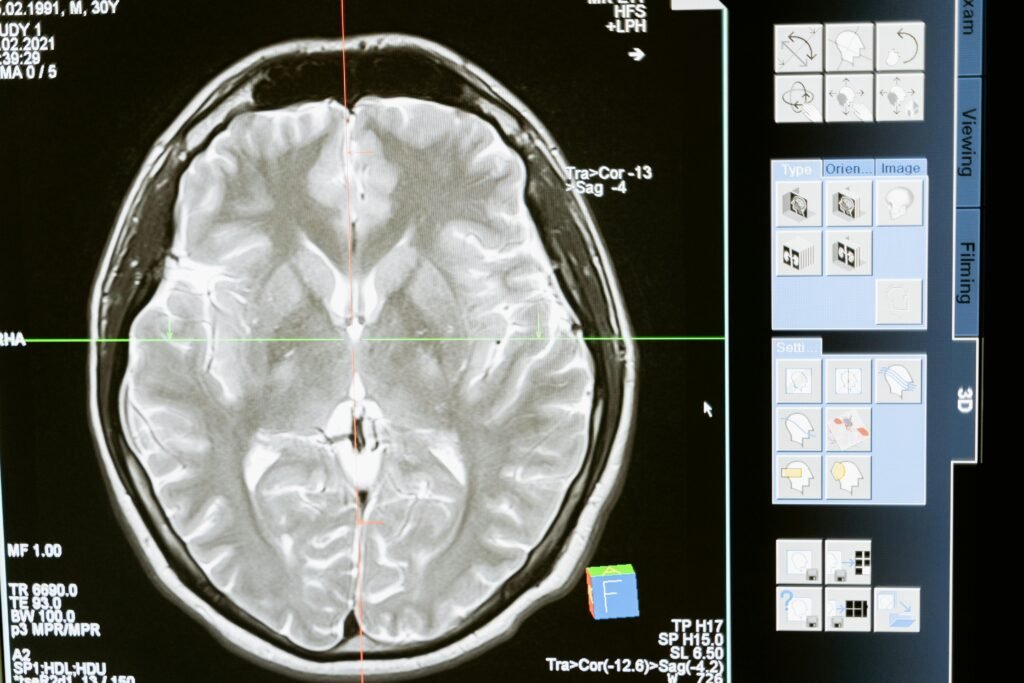
Understanding Biohacking for the Mind
Biohacking for the mind focuses on optimizing mental performance through intentional lifestyle adjustments.
It revolves around identifying practices that support brain health and function without relying on supplements.
These approaches often tap into natural methods that influence how the brain processes information, improves focus, and retains memories.
For example, one key aspect of mental biohacking is refining daily habits that affect brain activity.
This could mean implementing routines that align with your body’s natural rhythms or using strategies to reduce stress, which can otherwise impair cognitive abilities.
Additionally, fine tuning how you allocate your time for activities like rest, work, and relaxation can enhance mental clarity and overall efficiency.
Another important consideration is how your body responds to its external and internal environment.
Factors such as movement, proper nutrition, and managing overstimulation can directly impact how well your brain performs.
Adjusting your environment, like incorporating more structured routines or creating spaces designed for focus, can further support cognitive improvements.
Practices such as setting goals to challenge your brain while reducing distractions can significantly sharpen mental focus over time.
Biohacking for the mind is highly individual and requires a mindful approach to discover which techniques work best for each person’s unique needs.
The Power of Sleep and Rest

Sleep is a critical factor in optimizing mental performance and overall well being.
During sleep, the brain undergoes processes that help organize and store information gathered throughout the day.
This is why maintaining healthy sleep habits can significantly impact memory retention and cognitive sharpness.
To naturally support your sleep, focus on creating an evening routine that promotes relaxation.
This might include dimming the lights, engaging in calming activities like reading or light stretching, and avoiding heavy meals before bed.
Limiting exposure to artificial blue light, particularly from screens, can also help prepare your brain for rest by supporting the production of melatonin, the hormone that regulates sleep cycles.
Another effective way to improve rest is to align your daily schedule with your body’s natural rhythms.
Going to bed and waking up at the same time every day, even on weekends, can help regulate your internal clock, making it easier to fall asleep and wake up feeling energized.
If you find it challenging to wind down at night, incorporating techniques like progressive muscle relaxation or listening to soothing sounds can create a more tranquil state of mind.
Additionally, the quality of your sleep environment plays a key role in determining how well rested you feel.
Keeping your bedroom cool, dark, and quiet can make a big difference.
Investing in a comfortable mattress and pillows that support your preferred sleep position can also improve how deeply you rest.
For those struggling with falling asleep, taking time to journal or write down thoughts before bed can help clear the mind of lingering worries or mental clutter.
This practice may reduce the mental stimulation that keeps some people awake.
Similarly, engaging in a brief gratitude exercise before sleeping has been shown to promote more positive thought patterns, which can ease stress and encourage relaxation.
While the length of sleep required varies from person to person, most adults benefit from 7-9 hours per night.
Paying attention to how your body feels upon waking can help you fine-tune the amount of sleep you need for optimal mental clarity and energy throughout the day.
Nutrition and Hydration

What you eat and drink has a direct impact on how your brain functions.
Nutrient dense foods provide the fuel your brain needs to work efficiently.
For example, consuming foods rich in antioxidants, healthy fats, vitamins, and minerals can support mental sharpness and memory.
Leafy greens, berries, nuts, seeds, and fatty fish like salmon are particularly beneficial as they contain nutrients linked to brain health.
Foods high in antioxidants may help protect brain cells from oxidative stress, while omega-3 fatty acids found in fish are known to support cognitive function and overall brain structure.
Certain eating patterns have also been studied for their impact on mental performance.
Diets like the Mediterranean diet are associated with better brain health, possibly due to their emphasis on whole, minimally processed foods according to some observational studies.
The MIND diet, a hybrid of the Mediterranean and DASH diets, has shown promise in some cases, but evidence suggests that its effects on cognition might be limited when compared to a diet with mild caloric restriction when compared to a control diet with mild caloric restriction.
Exploring these eating styles can offer natural ways to support brain function.
Hydration is another critical factor in maintaining mental clarity and focus.
Even mild dehydration can lead to difficulty concentrating and impair memory.
Drinking enough water throughout the day helps maintain optimal brain performance, so make it a habit to stay hydrated by keeping a water bottle nearby.
Adjusting your water intake based on activity level, climate, and individual needs can further help prevent dehydration.
In addition to water, herbal teas or drinks without added sugars can provide hydration while offering potential calming effects.
Be mindful of caffeinated beverages, as they may offer short-term benefits for focus but can also disrupt sleep if consumed in excess or too late in the day.
This can ultimately impact cognitive performance over time.
Certain micronutrients found in food, such as magnesium, zinc, and iron, are essential for proper brain function.
Including foods like whole grains, beans, and lean proteins can help ensure your brain receives these vital nutrients.
Making small, sustainable adjustments to your diet can provide the brain with the resources it needs to operate more effectively.
Exercise and Physical Activity

Engaging in physical activity is one of the most effective ways to support brain health and enhance cognitive function.
Exercise has been shown to stimulate the release of proteins that are crucial for maintaining brain health, promoting the growth of new connections between neurons who are more physically active than their sedentary counterparts.
Activities that raise your heart rate, such as running, brisk walking, or cycling, can improve blood flow to the brain, ensuring it receives the oxygen and nutrients necessary for optimal performance.
In addition to supporting general cognitive function, exercise can positively influence brain glucose metabolism.
This process is associated with reducing the risk of age related cognitive decline, including conditions such as Alzheimer’s as indicated by an observational study.
Physical activity also aids in regulating stress levels, which is essential for preventing the negative effects that chronic stress can have on brain function.
Activities such as yoga or tai chi not only enhance physical flexibility but also encourage a sense of mental calmness, offering a dual benefit for body and mind.
Exercise’s impact on memory has also been documented, with studies showing that regular physical activity can lead to structural changes in the brain.
Specifically, it can increase the size of areas critical for spatial memory as demonstrated in a randomized controlled trial.
This makes incorporating exercise into your routine particularly beneficial for tasks requiring learning and recall.
Even simple activities like a daily walk can contribute to these changes, highlighting how accessible this approach to mental enhancement can be.
Aerobic exercises are often emphasized for their brain-boosting potential, but strength training and balance focused movements should not be overlooked.
For example, weightlifting can enhance focus and discipline, while exercises that improve coordination, such as dance or martial arts, help develop cognitive flexibility.
Finding activities you enjoy can make it easier to stay consistent, whether it’s joining a group fitness class, practicing yoga in a quiet space, or simply taking your dog for a jog.
Lastly, timing and frequency of physical activity matter.
Mindfulness and Meditation

Mindfulness and meditation practices offer a way to train the mind to remain present and attentive, fostering a sense of calm and mental clarity.
These techniques can be as simple as setting aside a few minutes each day to focus on your breath or observing your surroundings without judgment.
Deep breathing exercises, where you inhale deeply through your nose, hold the breath briefly, and exhale slowly, are particularly effective for reducing tension and promoting a centered state of mind.
Meditation comes in various forms, making it adaptable to different preferences and lifestyles.
For instance, guided meditations can help individuals who are new to the practice by providing step by step instructions or visualizations.
Body scan meditations, where attention is progressively directed to different parts of the body, can be particularly useful for releasing physical and mental stress.
For those with busy schedules, micro-meditations; short, one to two-minute sessions, can be incorporated throughout the day to reset and refocus.
Another helpful approach is mindfulness during everyday activities.
This might include paying full attention to the sensations of eating a meal, noticing the textures and flavors with intention, or practicing gratitude by reflecting on small moments of joy.
Walking meditation is another option, combining gentle movement with focused awareness of each step and the surrounding environment.
These practices not only enhance attention but also promote a greater sense of connection to the present moment.
Incorporating mindfulness into work or study routines can also yield benefits for productivity.
Techniques such as single tasking; focusing fully on one task at a time, help reduce mental distractions, allowing the brain to process information more effectively.
Similarly, mindful breaks, where you step away from tasks to simply breathe or observe your thoughts, can prevent burnout and sustain focus over extended periods.
Visualization exercises can further support cognitive performance.
These involve creating mental images to prepare for challenging situations or to reinforce positive outcomes.
For example, visualizing yourself confidently completing a task can boost motivation and reduce performance related stress.
Another tool for mindfulness is journaling, particularly practices like stream of consciousness writing or gratitude journaling, which encourage self awareness and reflection.
Writing out thoughts and feelings can declutter the mind and lead to greater emotional clarity.
For individuals seeking additional structure, mindfulness apps or programs can provide accessible resources for guided practices, progress tracking, and reminders to pause and refocus throughout the day.
Consistency in practicing mindfulness, even in small doses, can lead to noticeable improvements in mental clarity and emotional resilience over time.
Engaging with these methods regularly can make mindfulness a natural part of daily life, enhancing overall mental function.
Environmental Factors

The spaces we spend time in can have a profound impact on how our minds function, influencing focus, creativity, and even mood.
For example, overly cluttered areas or chaotic surroundings may contribute to mental overstimulation, making it harder to concentrate on tasks or retain information.
By organizing and decluttering your environment, you create a setting that encourages clear thinking and reduces unnecessary distractions.
Natural light is another powerful factor in enhancing mental performance.
Exposure to daylight not only helps regulate your body’s internal clock but also boosts alertness and energy levels.
Positioning your workspace near a window or incorporating daylight simulating lamps can help counteract the effects of dim or artificial lighting.
In addition, limiting the use of harsh overhead lighting and instead opting for softer, layered lighting options can create a more calming atmosphere conducive to sustained focus.
Plants can also improve cognitive performance by bringing elements of nature indoors.
Research suggests that greenery in a room may reduce stress and improve attention by creating a more tranquil and inviting space.
Low maintenance plants like succulents, snake plants, or pothos are great choices, as they require minimal care while still offering visual and psychological benefits.
Temperature plays an important role in your ability to focus as well.
Working or relaxing in a space that is too warm or too cold can be uncomfortable and distracting.
Keeping the room at a moderate, comfortable temperature helps maintain concentration and prevents your energy from being drained.
Adding items like a fan, heater, or cozy blanket can help tailor the environment to your personal preference.
Noise levels are another critical consideration for maintaining focus.
While complete silence might be ideal for some, others perform better with soft background noise or calming music.
Experimenting with white noise machines or instrumental playlists can help you find the auditory conditions that best support your focus.
Conversely, noise-canceling headphones are useful if you’re dealing with distracting or unpredictable sounds in your surroundings.
Incorporating personalized touches can make the environment feel more inviting and aligned with your preferences.
This might include adding artwork, photographs, or objects that inspire positive emotions or reflect your personality.
The choice of colors in a space can also influence mental function.
For example, shades of blue and green are often associated with calmness and focus, while warmer tones like yellow can encourage creativity.
Finally, ensuring proper ergonomics in your setup can directly affect both your physical comfort and cognitive efficiency.
An adjustable chair, a desk at the right height, and a monitor positioned at eye level can reduce physical strain and allow you to focus more fully on your tasks.
Technology and Brain Training

Technology offers innovative ways to support cognitive development and boost mental agility through various tools and applications.
Brain training apps, for instance, are designed to challenge memory, processing speed, and problem-solving skills through engaging exercises.
These tools can serve as a convenient addition to a biohacking routine, helping users track their progress and target specific areas of improvement.
Many of these programs adapt to your performance level, ensuring that tasks remain challenging but achievable as your abilities improve.
Incorporating technology into cognitive enhancement also allows for the use of wearable devices that monitor brain activity, heart rate, and stress levels.
These devices provide real-time feedback, enabling users to identify patterns that may impact their mental performance.
For example, noticing fluctuations in focus during different times of the day can help you adjust your schedule to work on demanding tasks when your concentration is at its peak.
Wearables can also guide practices like deep breathing by providing cues to slow your breathing and reduce stress.
While technology offers valuable resources, moderation is key.
Spending excessive time on screens can contribute to mental fatigue and reduce overall focus.
To prevent this, consider scheduling regular breaks from digital devices and incorporating activities that do not involve screens, such as physical exercise or meditation, to balance your routine.
For tasks that require screen use, enabling settings like blue light filters in the evening can help minimize disruption to your sleep patterns.
Gamified approaches to brain training can make the process enjoyable and motivate consistent practice.
Many apps incorporate puzzles, memory games, and logic challenges that stimulate different cognitive functions.
Additionally, virtual reality (VR) technologies are emerging as a tool for cognitive training, offering immersive environments that engage multiple senses to strengthen memory and spatial awareness.
Technology can also assist in managing productivity through tools like focus enhancing apps or timers designed for techniques such as the Pomodoro method, where work is divided into intervals with planned breaks.
These tools promote a structured approach to tasks, helping users stay on track without feeling overwhelmed.
For those seeking to deepen their understanding of their cognitive habits, data driven platforms can offer insights into how factors like stress, rest, or nutrition may influence mental clarity.
Using this information, you can make informed adjustments to further enhance focus and performance.
When used thoughtfully, technology can complement other biohacking strategies and support sustainable cognitive growth.
